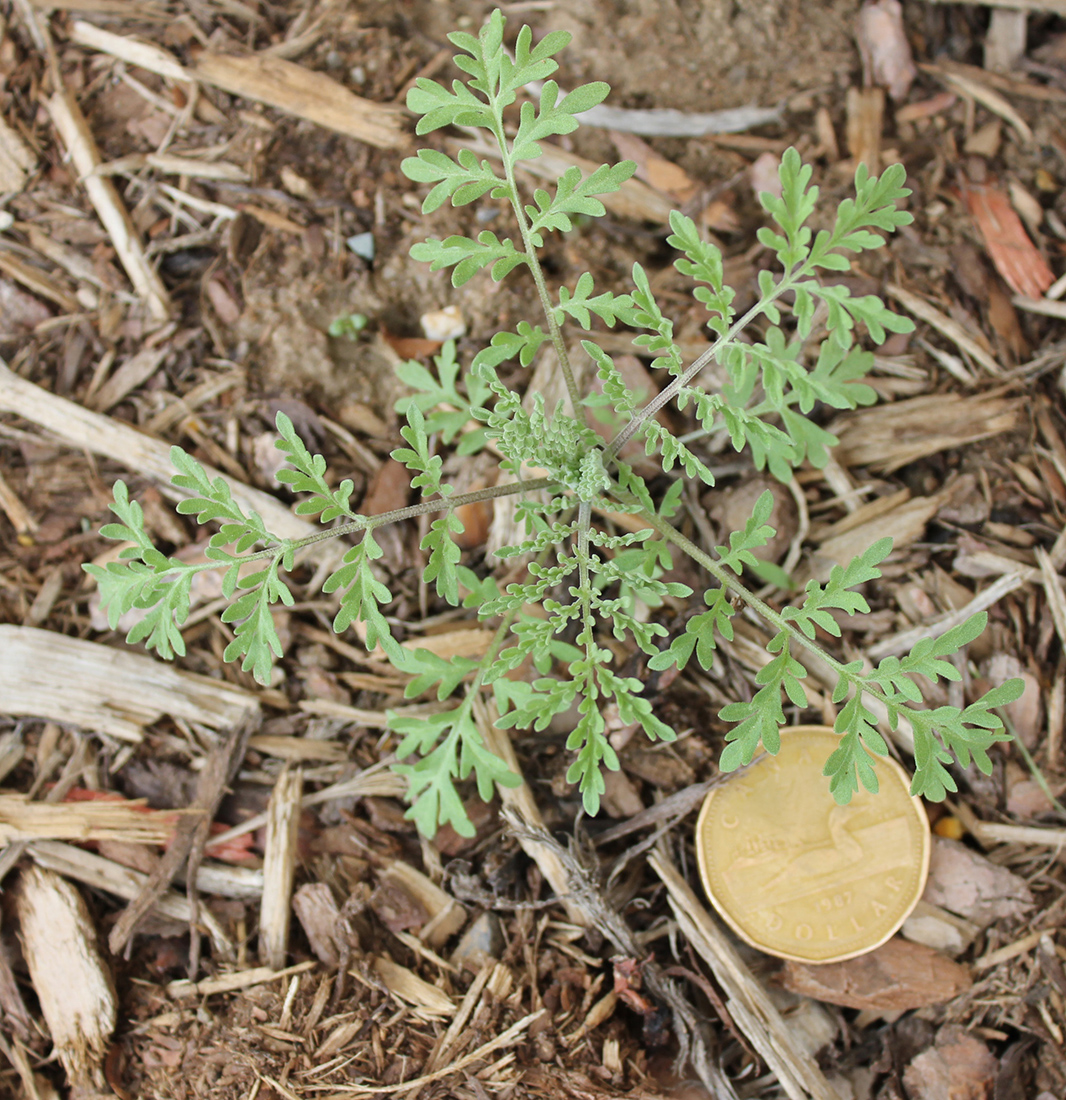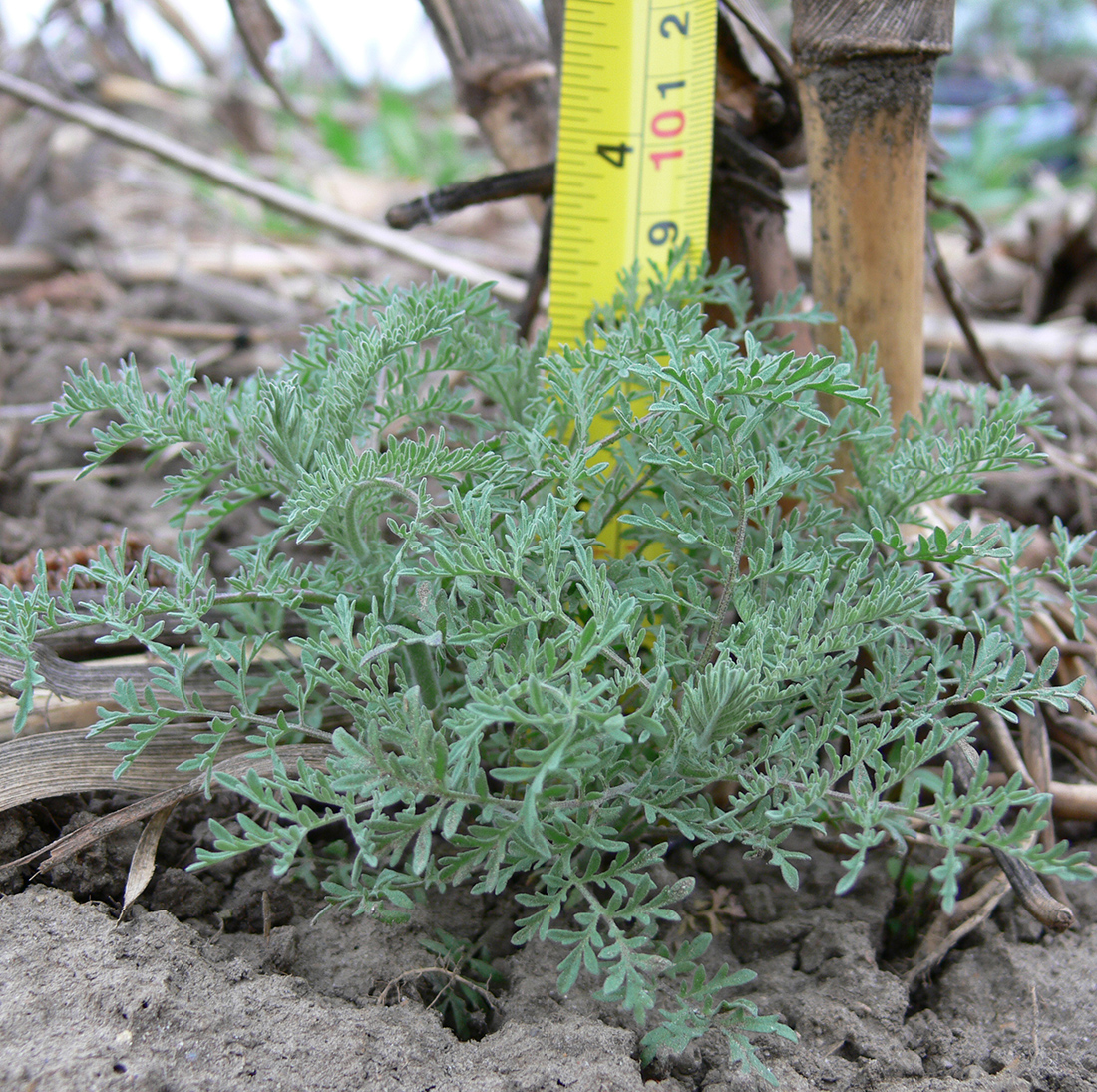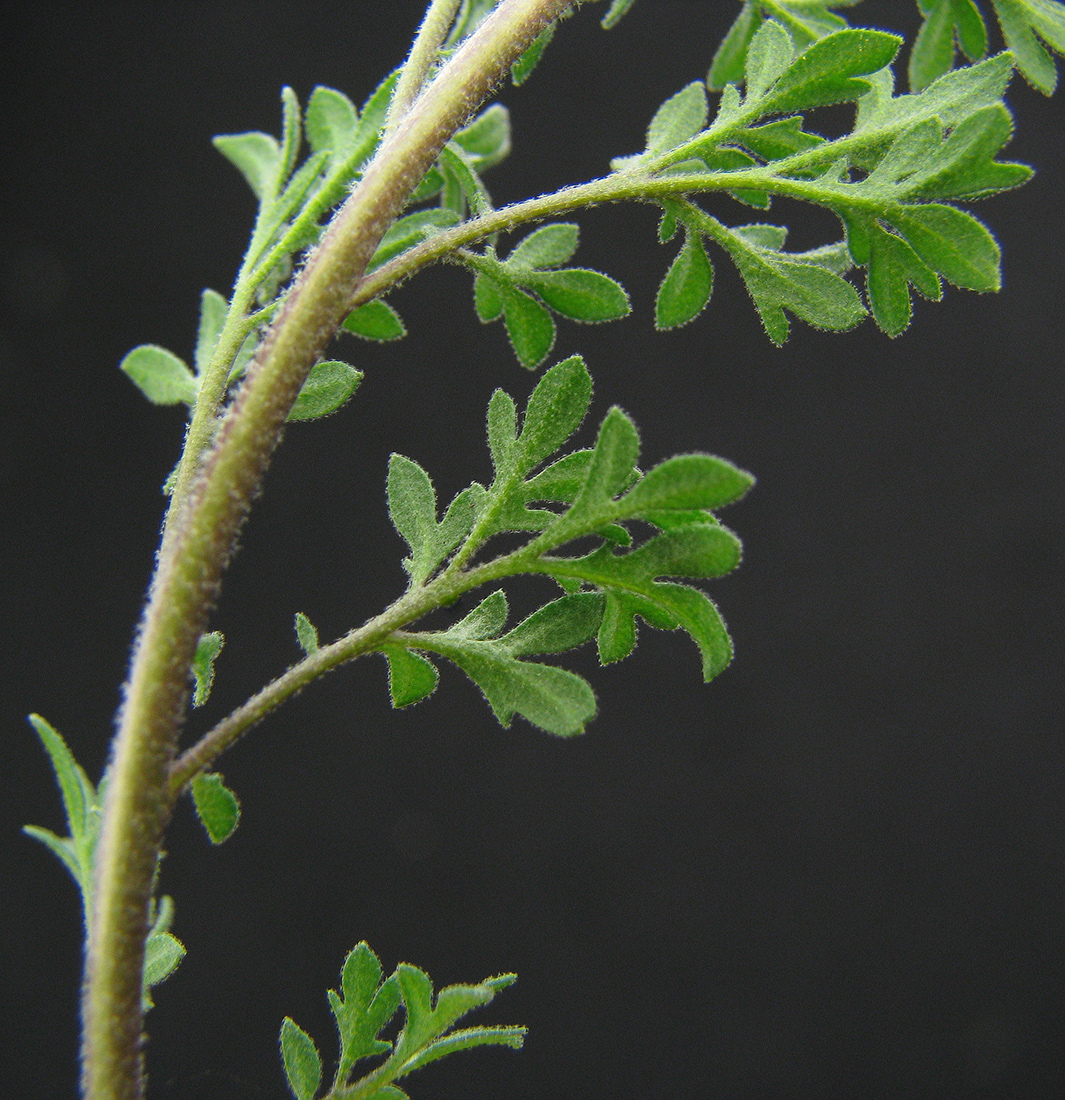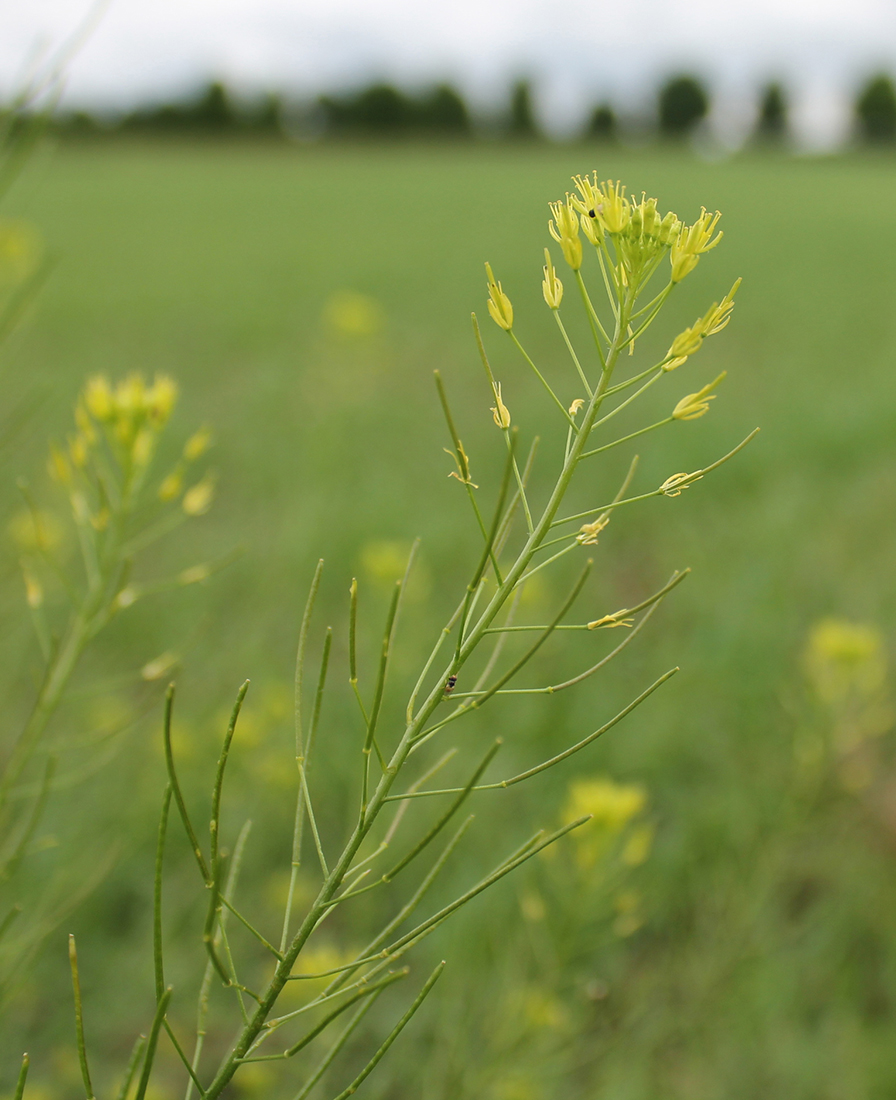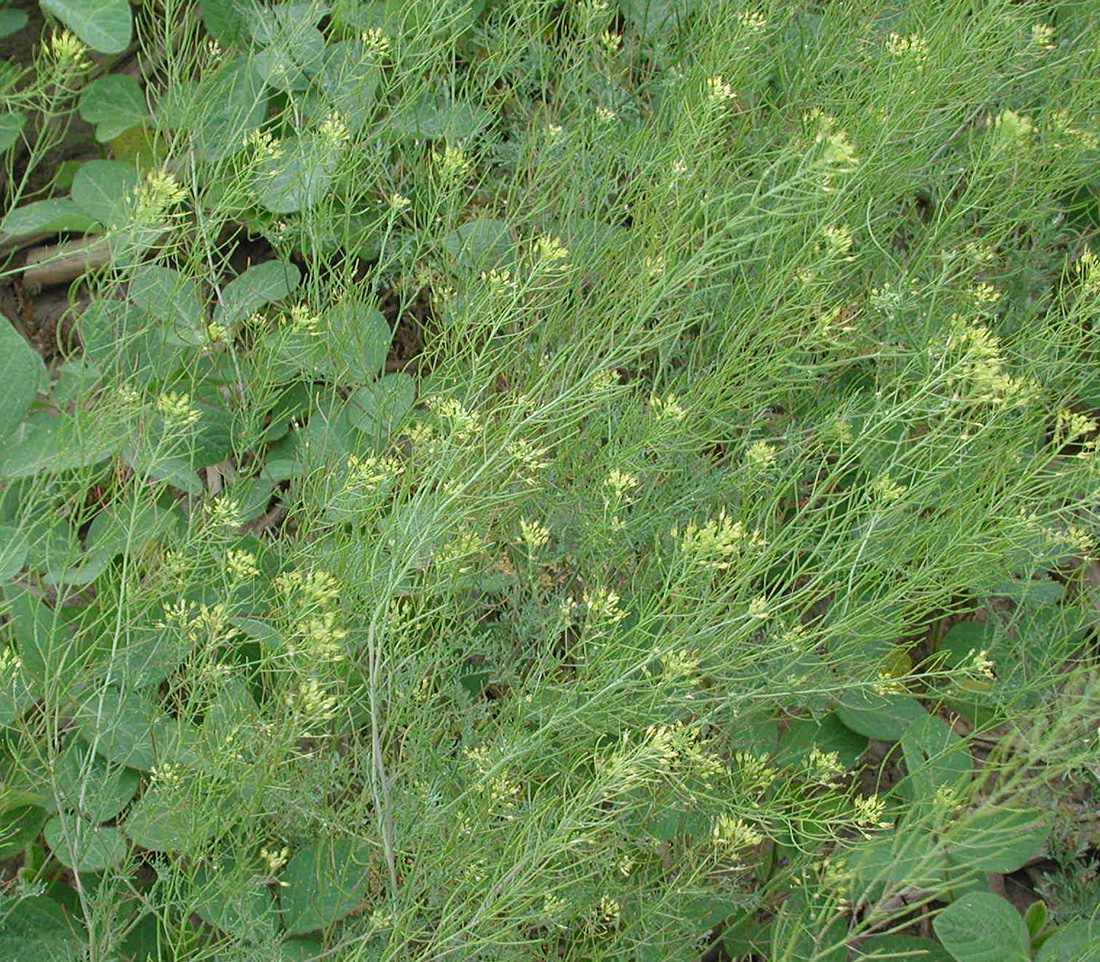Flixweed
- Mustard (Brassicaceae family):
- Descurainia sophia (L.) Webb ex Prantl
- EPPO code:
- DESSO
- Other names:
- Tansy mustard
Species information
- Lifecycle:
- Winter annual or biennial.
- Propagation:
- Reproduces by seed.
- Emergence:
- Early spring.
- Habitat:
- Native to Europe; found throughout Ontario in fields, gardens, roadsides and waste areas.
- Competitiveness:
- Competitive in crop plants, can crowd and reduce yields.
Identification clues
Leaves
- Cotyledons:
- Elongated to oblong or club shaped, base tapering into a long stalk, 10–12 mm long.
- First leaves:
- Arranged in tight rosette, three-lobed initially, then further divided.
- Mature leaves:
- Alternate leaf orientation; narrow, long and lacey in appearance with 2–3 divisions and fine hairs; appear grayish-green.
Mature plant
- Stem:
- Branched, grayish-green, erect and covered in fine, “star-like” hairs; 30–100 cm in height.
- Flowers:
- Individually very small and clustered on long stalks at the ends of stems and branches; green to pale yellow; flowers in the summer months.
- Seeds:
- Seedpods on slender stalks, curve upwards and almost parallel to the stem; seeds are bright orange.
Helpful tip
Stems and lacey-looking leaves of flixweed are a gray-green colour because of a dense covering of fine, branched “star-like” hairs.
Often mistaken for
Seedling flixweed resembles and are often mistaken for other plants with finely divided leaves.
I know it's not Common ragweed because Flixweed has elongated to oblong cotyledons compared with common ragweed’s round ones. Flixweed has round grayish-green stems compared to the flat, green stems of common ragweed at the juvenile stage. Flixweed leaves are more finely divided and the flowers are yellow compared to common ragweed’s green flowers.
I know it's not Wild carrot because Flixweed’s cotyledons are much broader than those of wild carrot. Wild carrot leaves are more finely divided than flixweed and will smell of carrots when crushed. Flixweed has yellow flowers compared to white for wild carrot.
I know it's not Biennial wormwood because The stems of biennial wormwood are green, flat and hairless. Flixweed has rounded leaf edges while biennial wormwood has sharp leaf edges.
